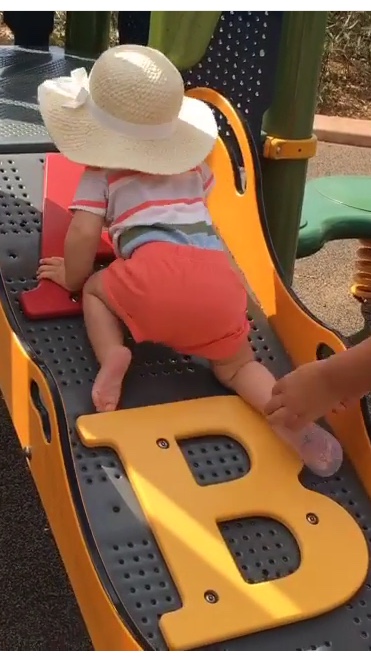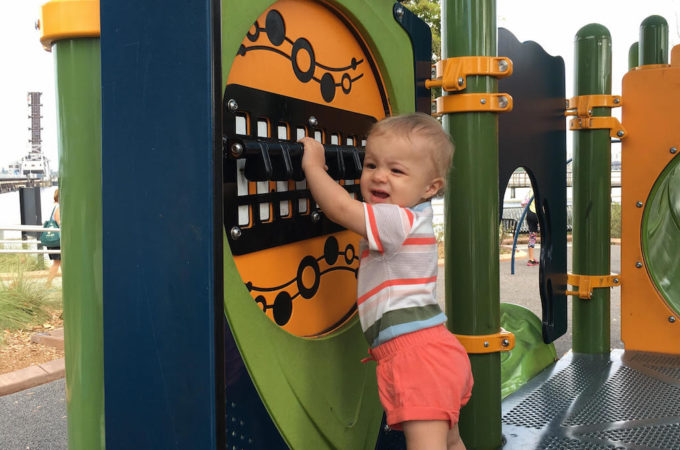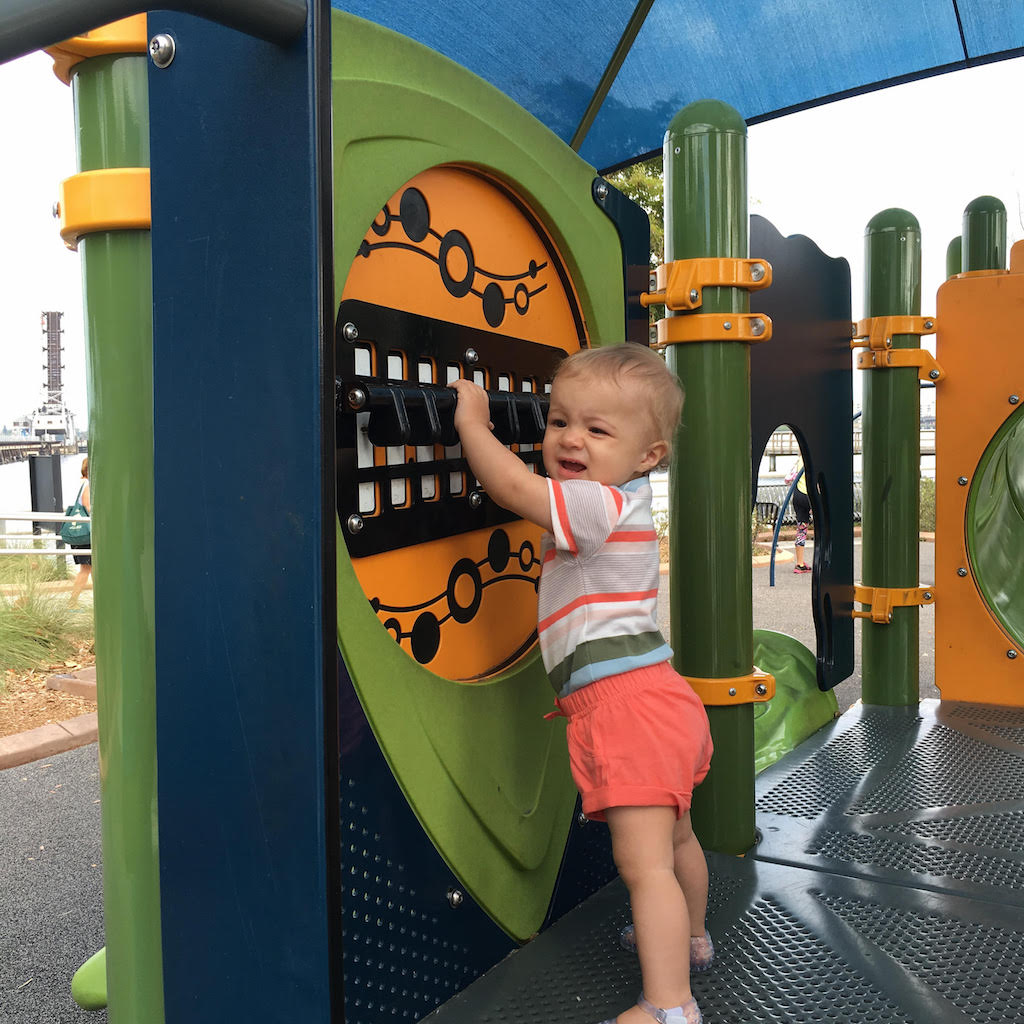There have been a fair number of articles popping up over social media about the importance of playground play. Playgrounds can be fantastic fun and they provide a multitude of learning opportunities! We’ve highlighted our top 6 below.
- Language Development. Children learn about ‘how things work’ and make meaning of the words they hear through experience. What makes a ladder different from a slide? Try them both out and see. We can speak about each of the objects or point out differences in how a slide looks vs how a ladder looks, but experiencing the feeling while on a slide vs climbing up a ladder adds even more understanding of the unique properties that make these two items different. Encourage your children to explore slides, ladders, swings, unsteady rope bridges, and steady wooden bridges etc. Through these experiences they start to create their own ‘definitions’ or meanings of words.
- Exploration of a different environment. Check out different playgrounds around your area. Exploration of new playground equipment encourages children to move in different ways,
 broaden their experiences and can lead them to begin questioning how things work (e.g. why does the rope bridge feel so unsteady and the wooden bridge feel very sturdy?). These types of questions that arise during play are fabulous and can lead to some pretty interesting discussions, and maybe even experiments and discoveries!
broaden their experiences and can lead them to begin questioning how things work (e.g. why does the rope bridge feel so unsteady and the wooden bridge feel very sturdy?). These types of questions that arise during play are fabulous and can lead to some pretty interesting discussions, and maybe even experiments and discoveries! - Building confidence. As children practice, and eventually master, different actions on the playground equipment they are building confidence. They are also growing their confidence as they figure out how different pieces of equipment work. A piece of equipment might look scary at first but as a child starts to understand how it works and what it does they become more confident and more likely to try out other new equipment.
- Problem solving. Whether this be physically trying to problem solve how to get across the rope bridge, or resolving a problem with peers. Playgrounds provide many opportunities for children to plan, sequence, and figure out a plan. Even when they’re unsuccessful, this trial-and-error process is a great learning tool.
- Development of social skills. Children learn from watching and interacting with each other. The playground provides great opportunities for playing with friends, meeting new children, and collectively working together to develop the play ideas.
- Pretend play. The playground provides a wonderful environment for encouraging pretend play. The child may decide the slide is a mail chute, or a way of traveling from one ‘home’ to another. There are endless possibilities for pretend play at the playground. Check out our previous post on how pretend play can helps support the important skill of self-regulation here. When engaging in pretend play, allow the child to take the lead and share their ideas. It’s amazing to see what their creative minds come up with!
What is your child’s favorite playground equipment? What do you notice them learning while playing on the playground?
—
Amanda



